
Woman&Home
48 Things You Never Knew About the Kennedys
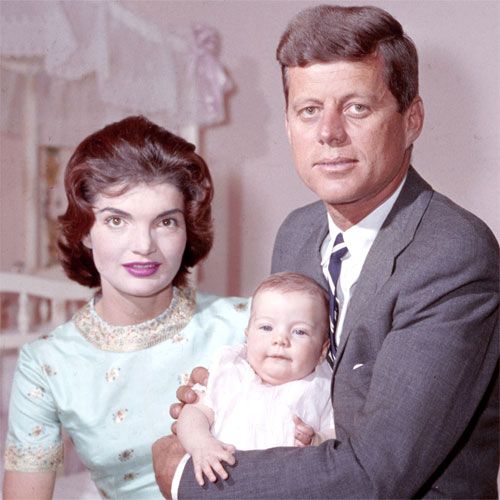
48 Things You Never Knew About the Kennedys
The minute the Kennedy family stepped out into the spotlight, they instantly charmed and captivated the world. Everything about them was alluring—their stunning looks, regal lifestyle, and endless political promise. Here, 48 things you never knew about the influential family.
By Marie Claire US Staff

The Kennedy Children Were Not Allowed to Cry
Rose Kennedy had extremely strict rules that she enforced on a daily basis. Her children were not allowed to cry, they were only allowed to eat certain foods (Rose wanted them to stay lean), lateness was not tolerated, and they were tasked with researching assigned topics and presenting reports at dinner.
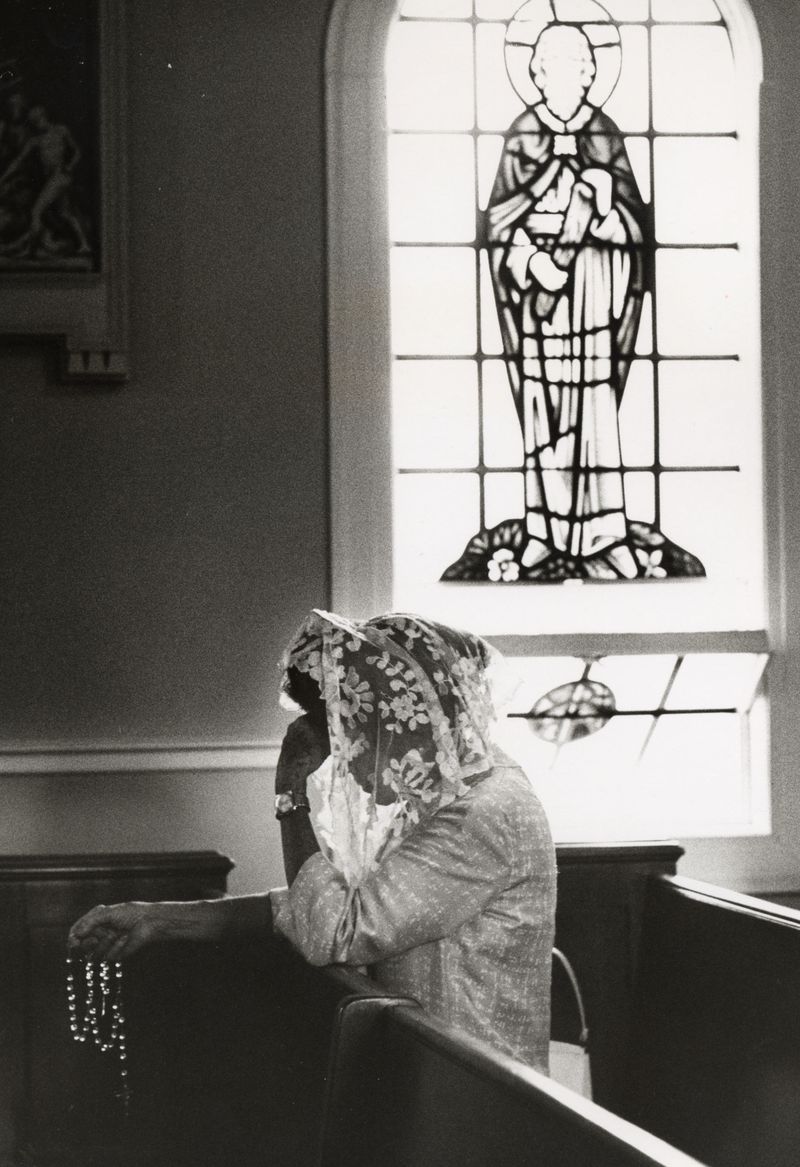
Rose Kennedy Was a Countess
As a devout Catholic, Rose went to a convent and was honored with the title of Countess to celebrate her extraordinary dedication to the church.
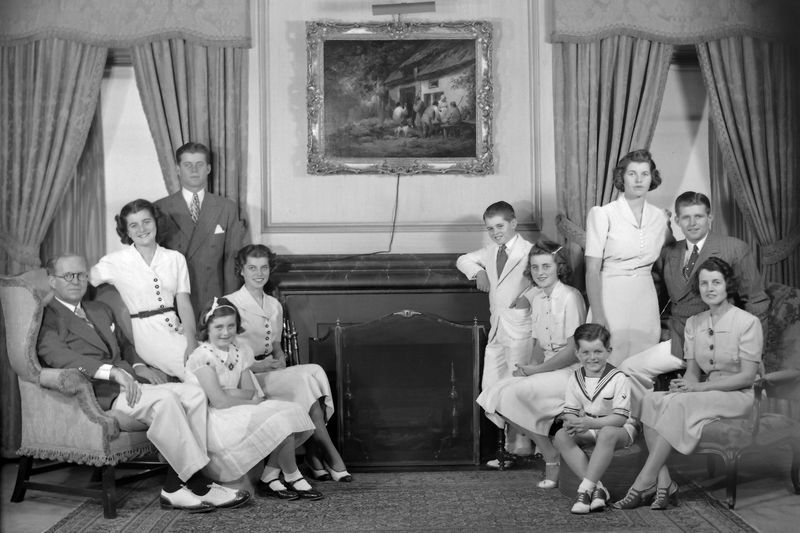
Bobby Kennedy Was His Mother's Favorite
Growing up, Bobby Kennedy preferred to stay home rather than go sailing or dancing with his siblings. His siblings said he was extremely shy, deeply religious, and suffered from social anxiety and academic struggles. As such, Rose had a soft spot for Bobby, and the two shared a very special bond.
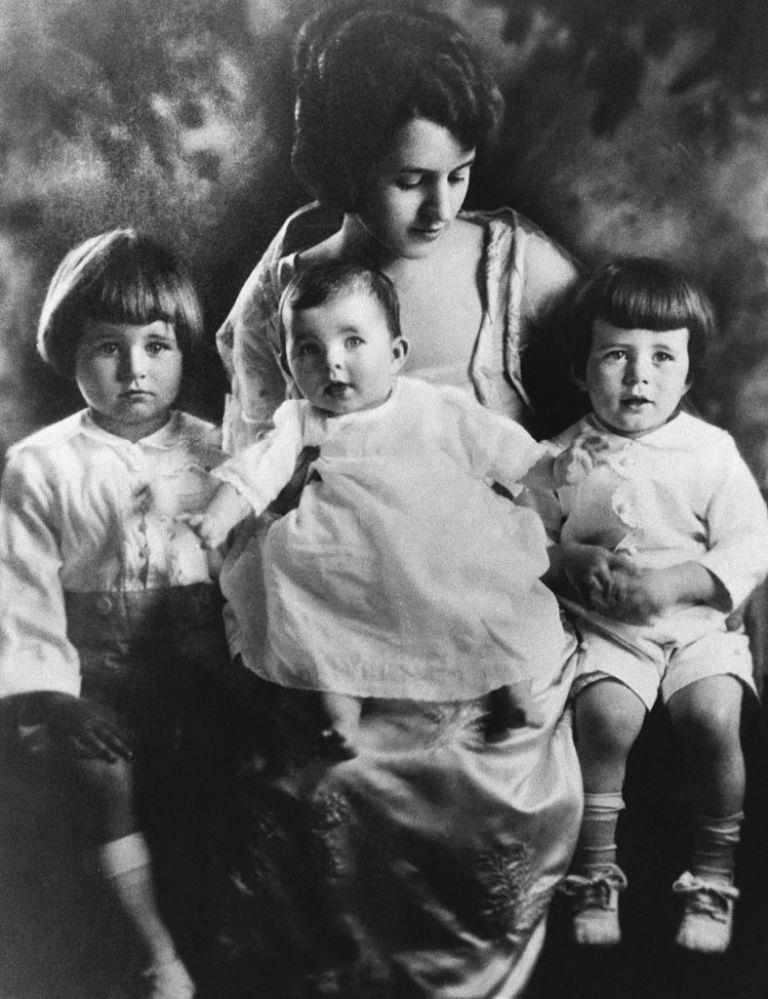
A Nurse Tried to Stall the Birth of Joe and Rose's Third Child, Rosemary
When Rose went into labor with her third child, the obstetrician was called, but he was extremely delayed due to a pneumonia epidemic in Boston. To save time, the nurse closed Rose's legs. That was unsuccessful so she held the baby's head for two hours, which has been linked to future brain damage and physical disability.
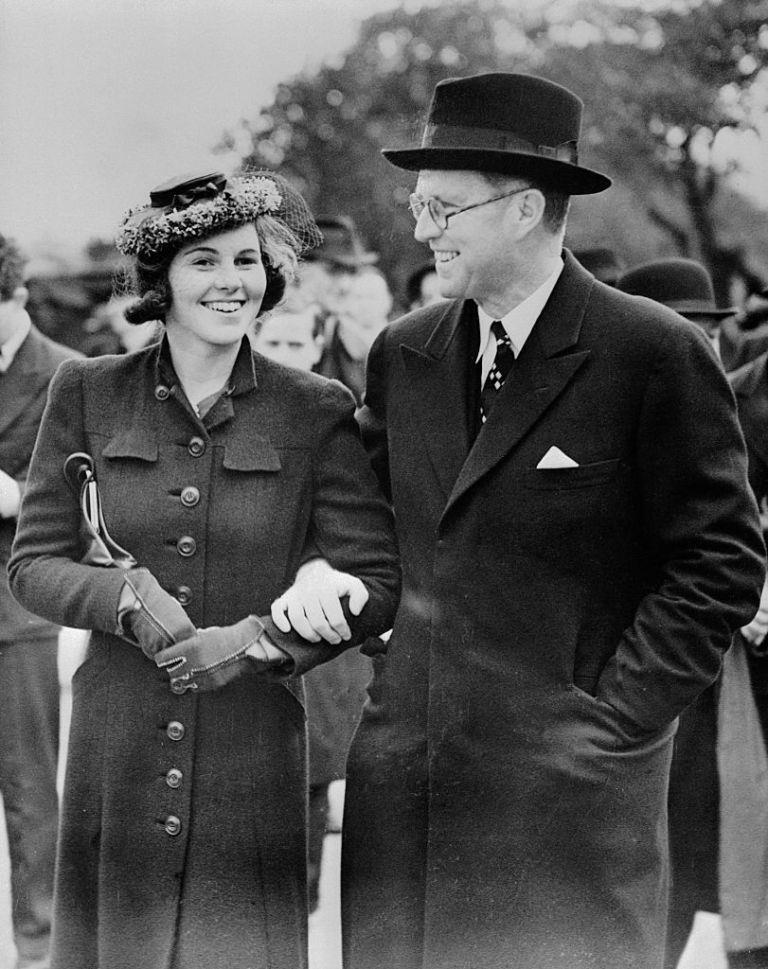
Rosemary Was Not Allowed to Leave the House Alone
Rose was extremely afraid of leaving Rosemary alone, so she prohibited Rosemary from leaving the house unaccompanied. As a result, Rosemary often ran away.
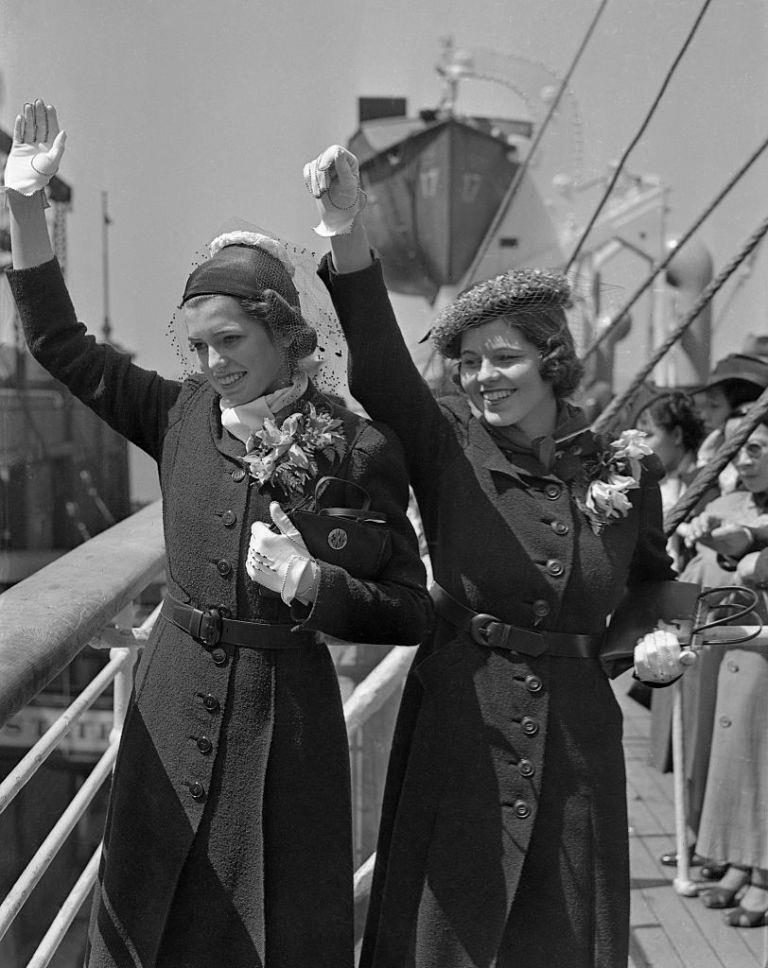
Rosemary Was Sent to Many Boarding Schools, but Ended Up at a Convent
Beginning at age eleven, Rosemary was sent to a series of boarding schools. She struggled deeply in school; her letters home revealed severe anxiety and unhappiness. Ultimately, she was sent to a convent in London. She often ran away at night. The nuns at the convent later revealed their suspicions that she was having sex with men she met at bars.
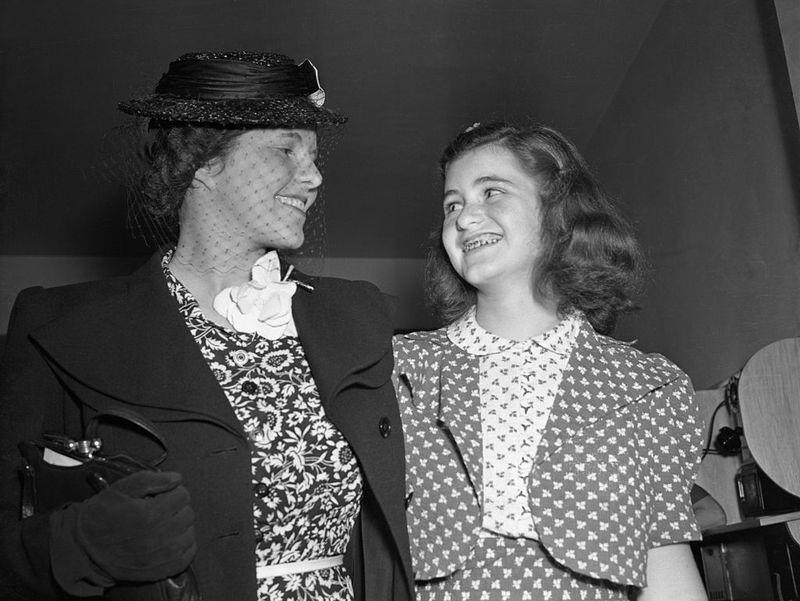
Rosemary Had Surgery Intended to Cure Mental Illness, But It Left Her Unable to Walk or Talk
As devout Catholics, the Kennedys believed that mental illness was a sin, and at the time, mental illness was incredibly stigmatized and misunderstood. Her parents—along with many others—believed that a lobotomy would help with her symptoms of mental illness. It completely altered her life.
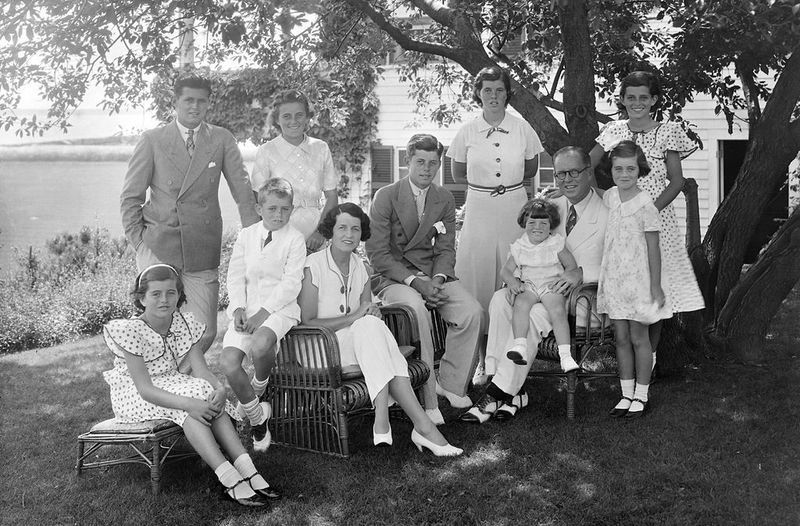
Rosemary Didn't See Her Family for Twenty Years
After the surgery, Joe and Rose sent Rosemary to a residential care facility in Wisconsin where she lived until her death in 2005. However, for the first twenty years, members of her family had no idea where she was.
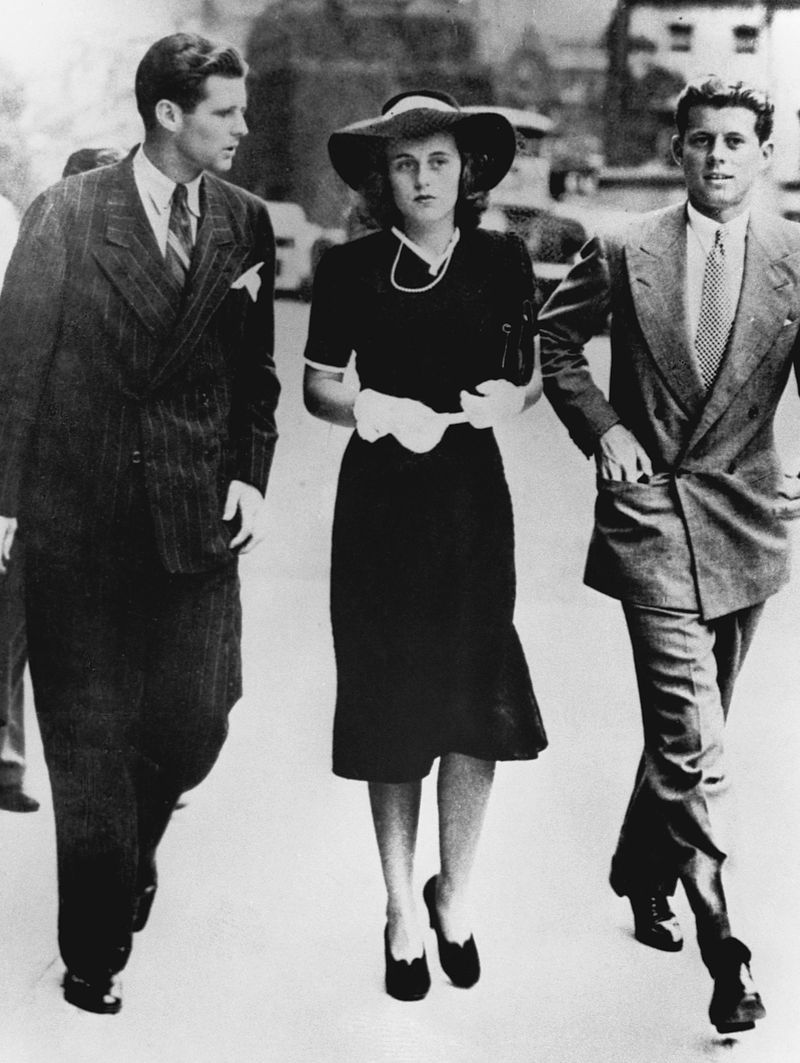
Patricia "Pat" Decided to Go to Hollywood Instead of into Politics Like the Rest of Her Family
Pat was an aspiring movie producer rather than an aspiring politician like the rest of her family. However, given the deep-rooted sexism in Hollywood at the time, she faced insurmountable challenges.



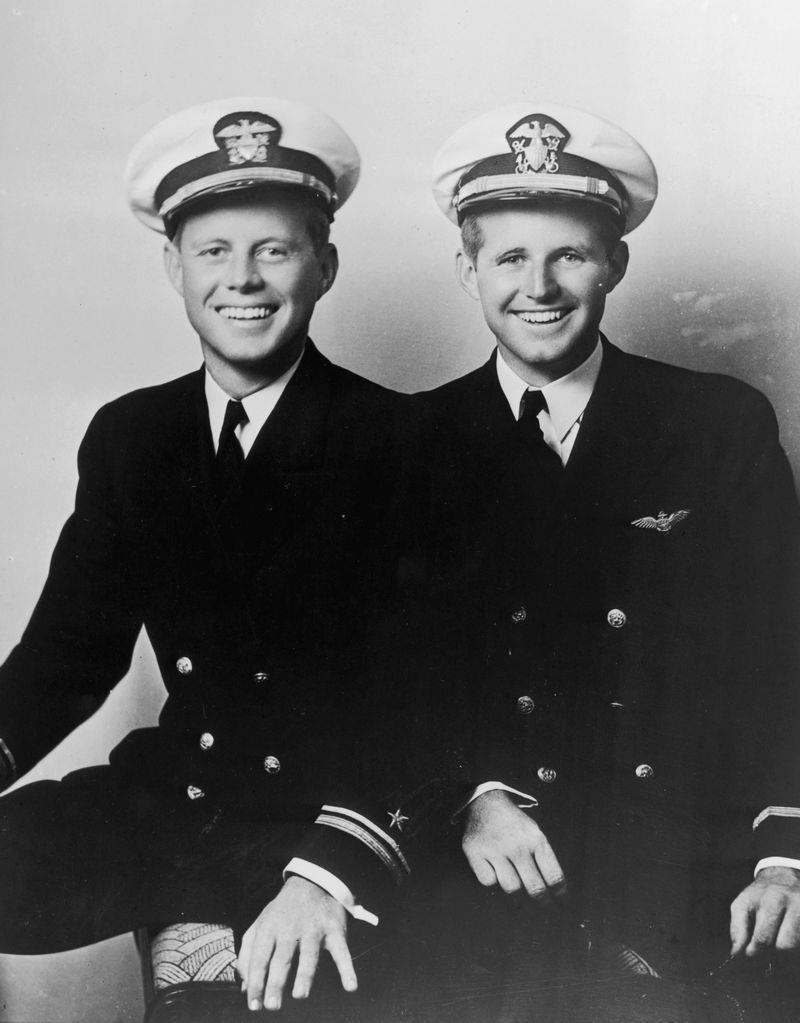
Joseph Sr. Received News of John's Death in the War, but Kept It from His Family
After John received a medal for his performance in the Pacific during World War II, he was reported missing in action. The surviving crew members held a funeral service for him, and the news of his death was sent home to Joe Sr. He did not share this information with his wife or children for a week, after which point they learned of John's survival. Ted Kennedy wrote in his memoir, "True Compass," of John's presumed death and Joe's silence. According to Ted, Joe Sr. allegedly withheld the information as he decided to "remain hopeful" for John's survival.
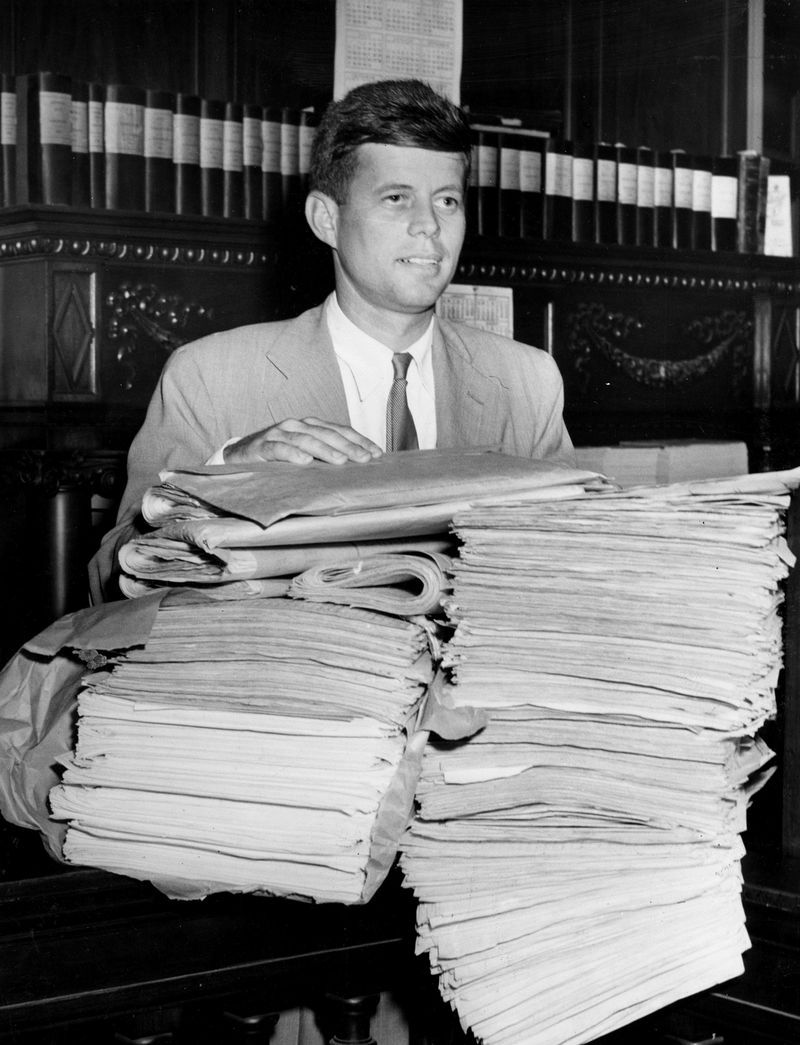
John Won the Pulitzer Prize
Before his entry into politics, John was deeply invested in writing and journalism. At age 22, he authored his first book, Why England Slept. In 1945, he spent a few months working for William Randolph Hearst's newspaper company, reporting on the aftermath of the war and the United Nations conference in San Francisco. In 1957, Kennedy received a Pulitzer Prize in biography for his book, Profiles in Courage. However, the award was controversial, as many believed that most of the book was ghostwritten by Theodore Sorensen, and thus, that Sorensen deserved the award.
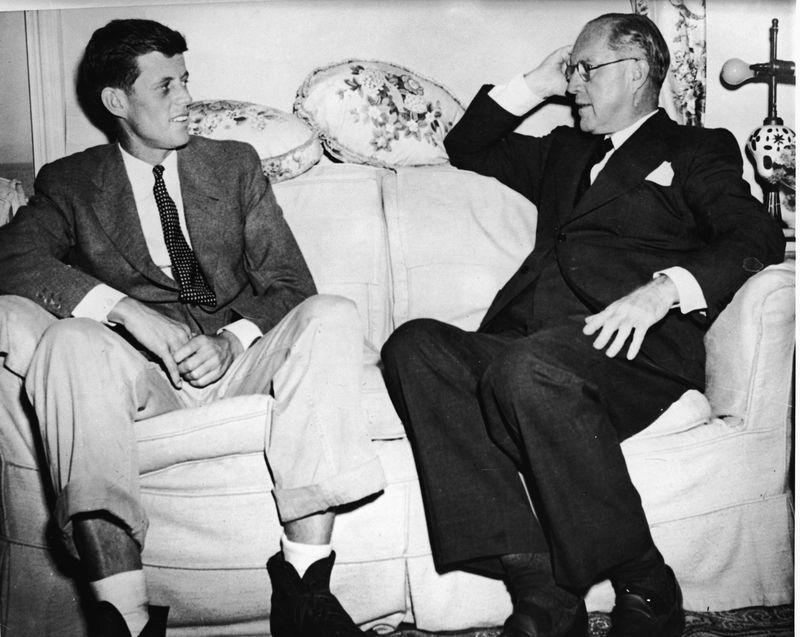
Joseph Sr. Wanted His Son Joe Jr., or "Golden Boy," to Become President
Joe Kennedy had big plans for his son Joseph Jr., but he died unexpectedly in a plan crash during WWII.
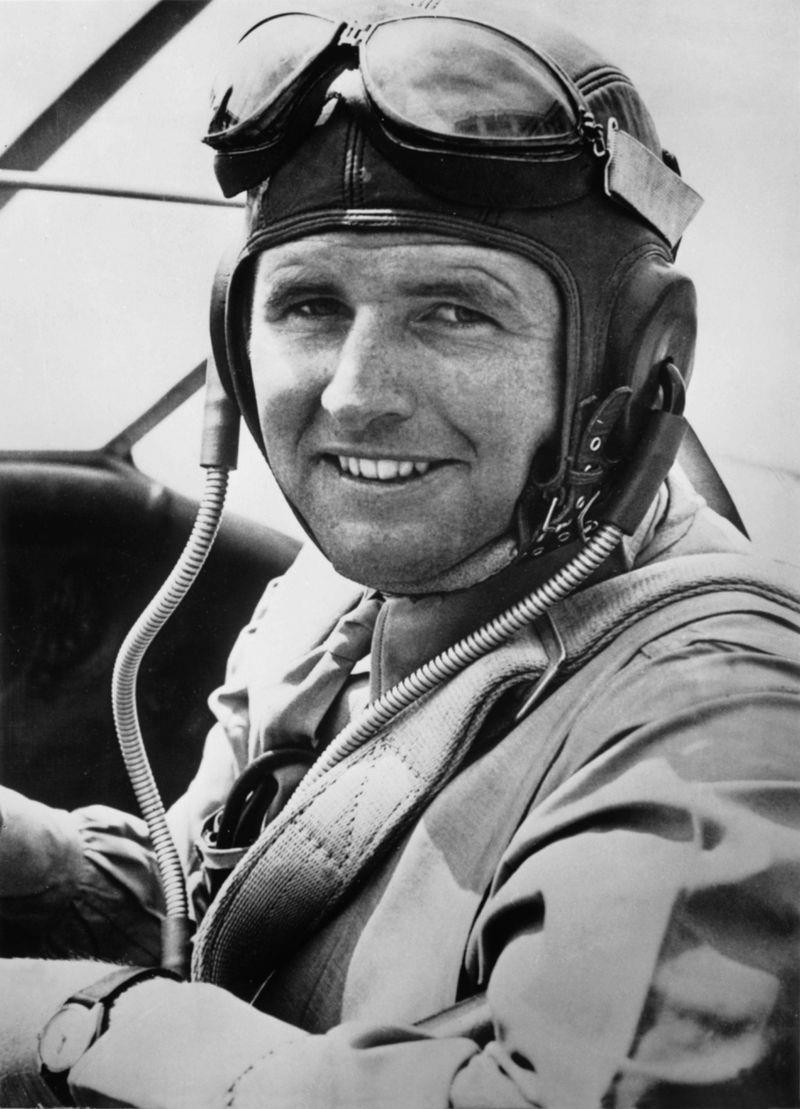
Joseph Jr. Had Already Completed His Service at the Time of the Plane Crash
Despite the fact that he had already finished his service, Joe Jr. embarked on another mission. His brother John had just received a medal commemorating his service in the war, which could possibly have influenced Joe to engage in an attempt to gain commemoration of his own. He ultimately died in the mission.
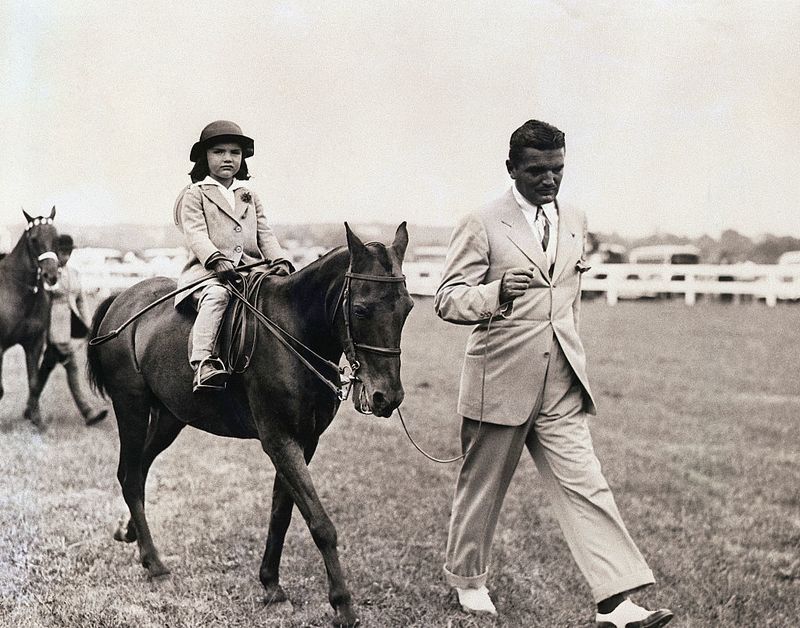
Jackie Kennedy Had a Tumultuous Relationship with Her Father
John Renou Bouvier III adored his two daughters, but had many issues including, "relentless womanizing, heavy drinking, and diminishing fortune." At her wedding to JFK, Jackie's stepfather walked her down the aisle instead of her father because he was too drunk.
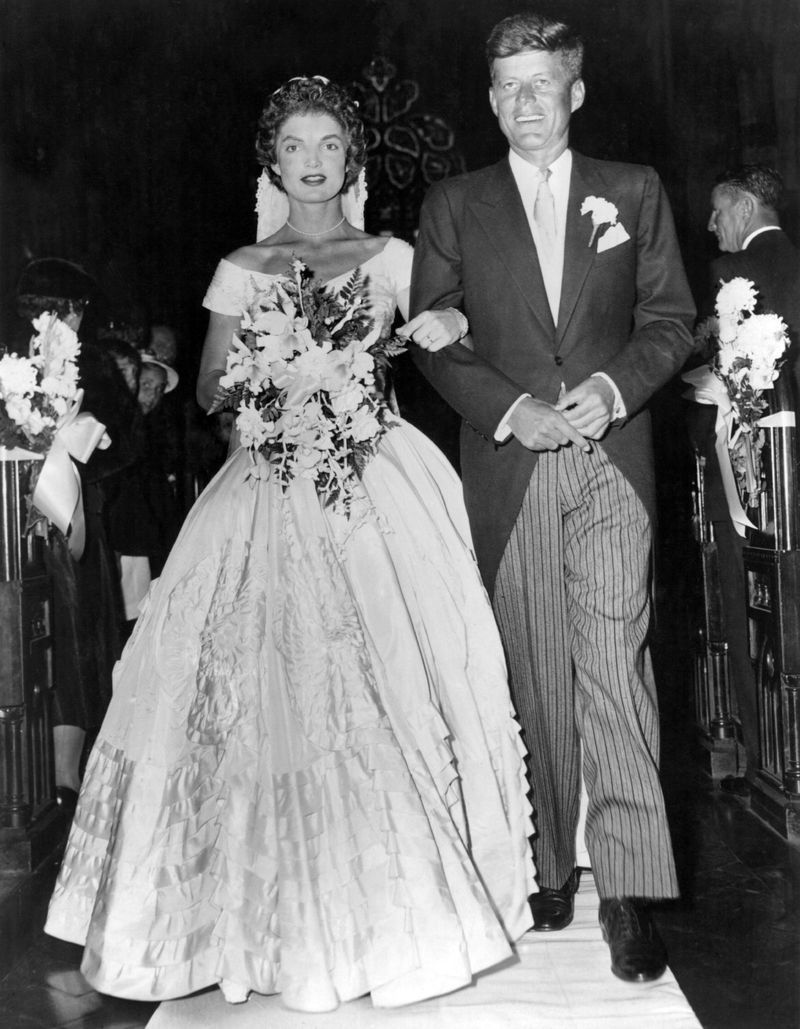
Jackie Came Very Close to Marrying Another Man before She Met John
The society pages of the Washington-Herald Times announced her engagement to John Husted, a Yale Graduate, World War II Veteran, and Wall Street Banker, in January 1952. She developed concerns about the relationship (some speculate she had reservations about becoming a housewife) and ended the engagement in March 1952. She met John at a dinner party only a couple of months later and the couple married in September of 1953.
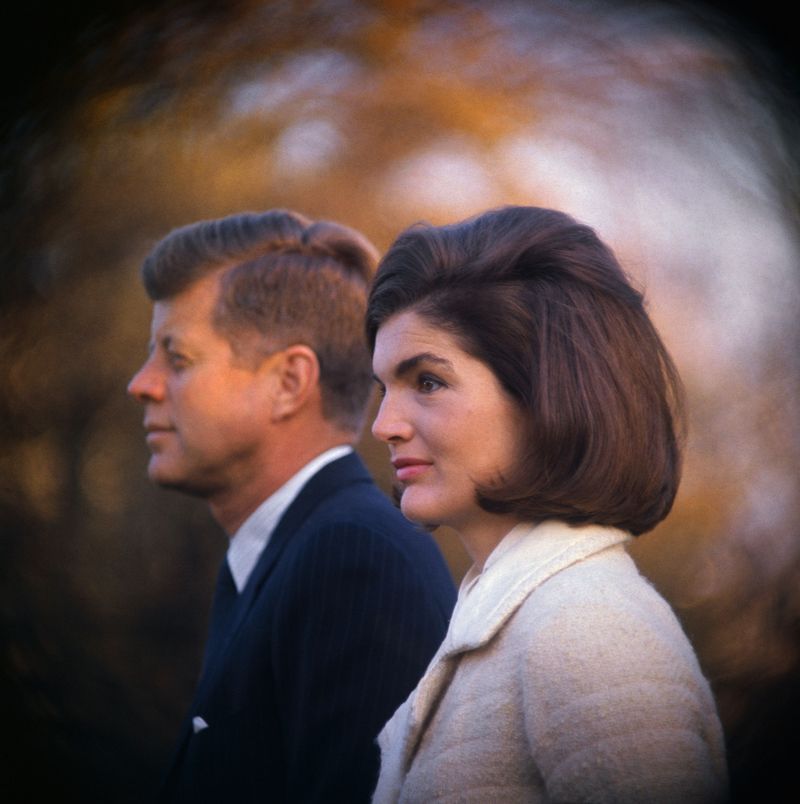
Jackie Wanted to Divorce John before His Presidency
Their marriage troubles didn't begin in the White House. Jackie had doubts about their relationship even before he became POTUS.
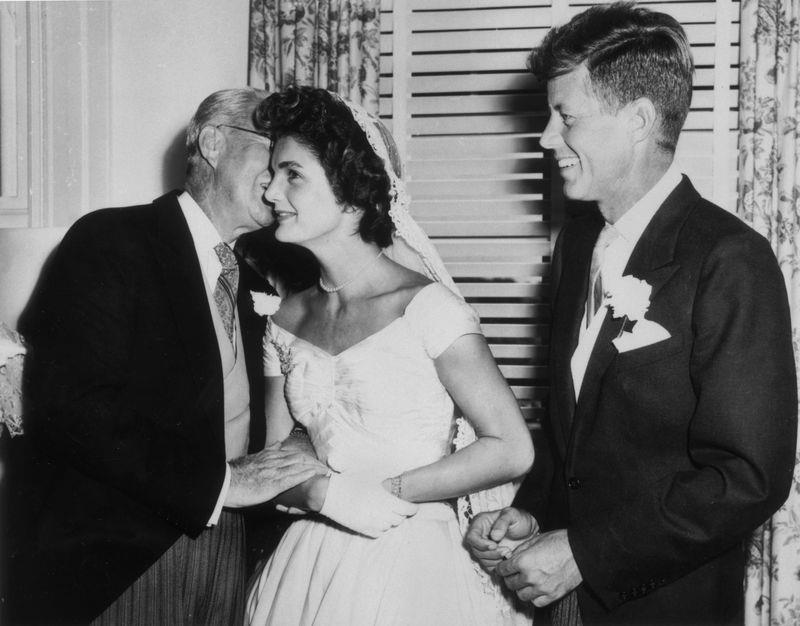
Joseph Sr. Offered Jackie One Million Dollars to Stay Married to John
Joseph intended to keep their marriage alive, fearing that a divorce would negatively impact JFK's political career.
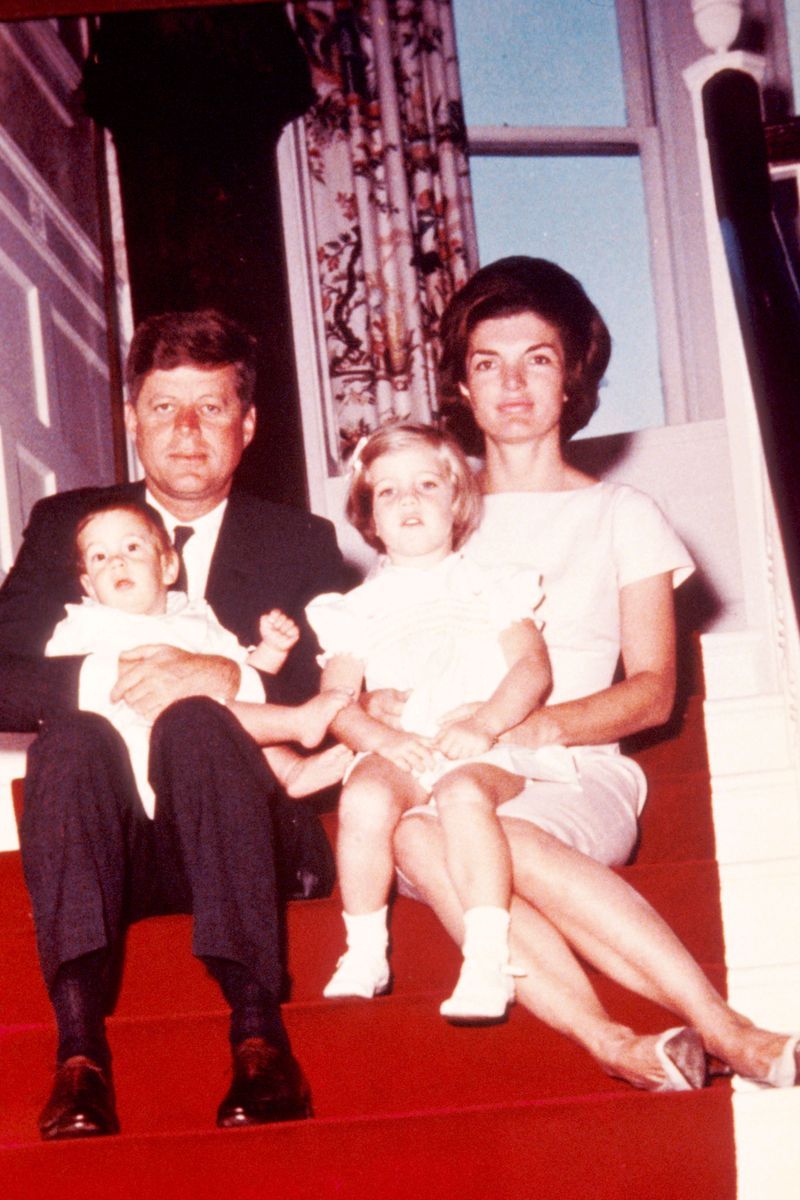
John and Jackie Actually Had Four Children
Jackie gave birth to two kids who died very young. "In 1956, Jackie gave birth to a stillborn girl whom the couple intended to name Arabella, and on August 7, 1963, Patrick Bouvier Kennedy was born five-and-a-half weeks early. The baby weighed under five pounds and died two days later from a pulmonary disease."
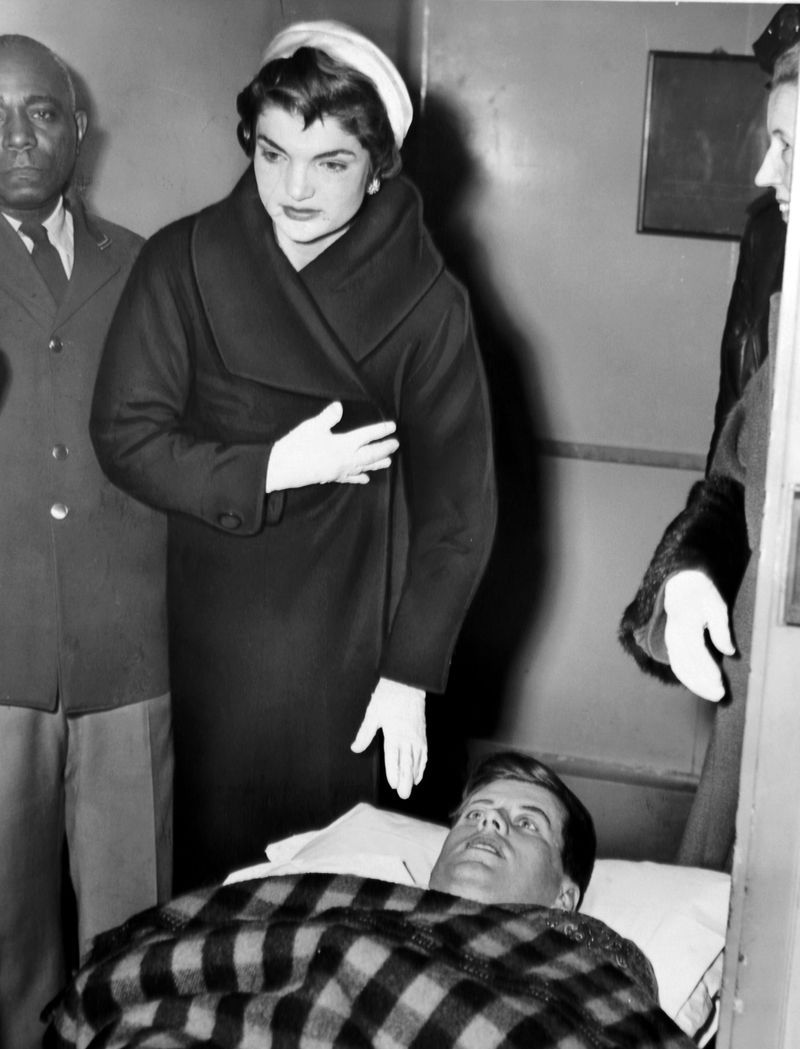
John Came Extremely Close to Dying Three Times before He Became President
JFK suffered from poor health his entire life. As a result, he was extremely susceptible to contracting major illnesses. He was diagnosed with Addison's Disease in 1943 and was issued a prognosis of only one year. He was traveling back from London on the Queen Mary when he became so ill that a priest was called in to deliver last rights. He received the sacrament again in 1951 again after catching a life-threatening fever while traveling in Asia. His health plummeted once again in 1954 when he fell into a coma after receiving surgery to confront his perennial back problems.
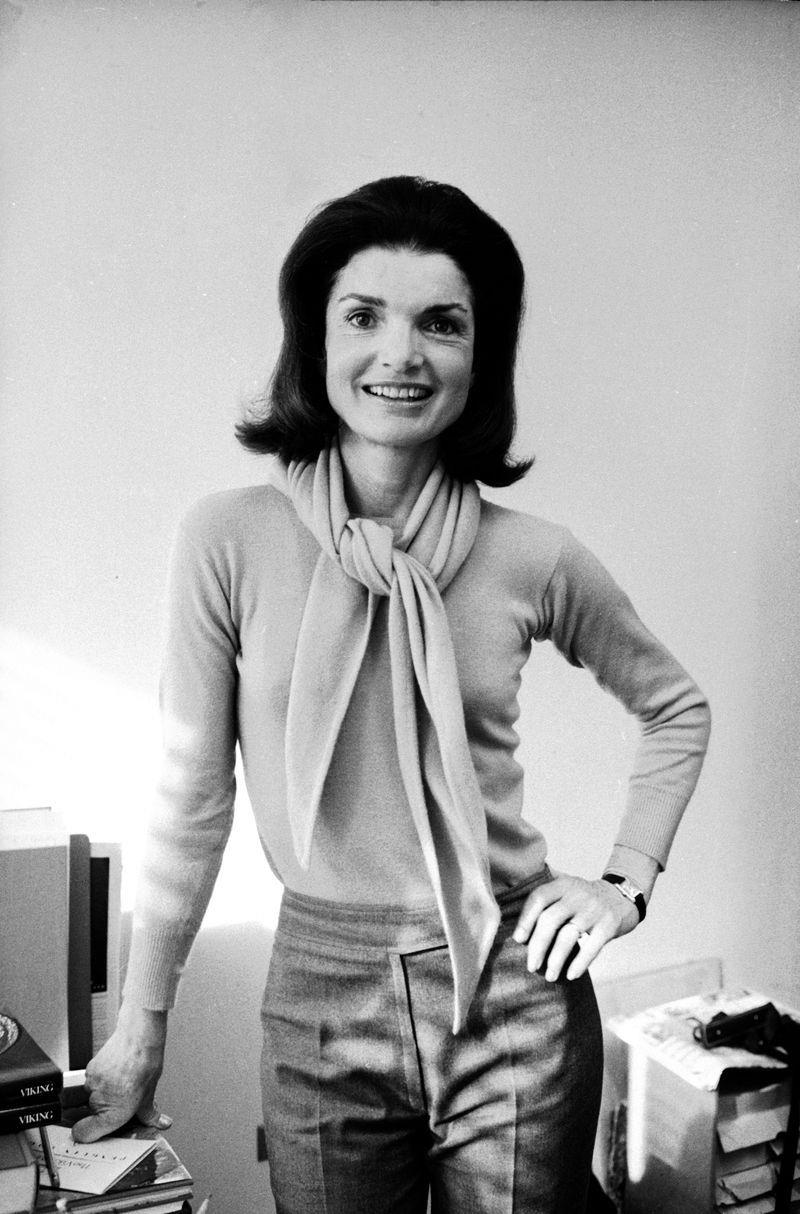
Before Jackie Moved into the White House, She Worked as a Reporter and Photographer
Jackie worked for the Washington Times-Herald in 1952 as the paper's "Inquiring Photographer." The job required her to ask people on the streets many questions ranging from personal finances, to politics, to relationships.
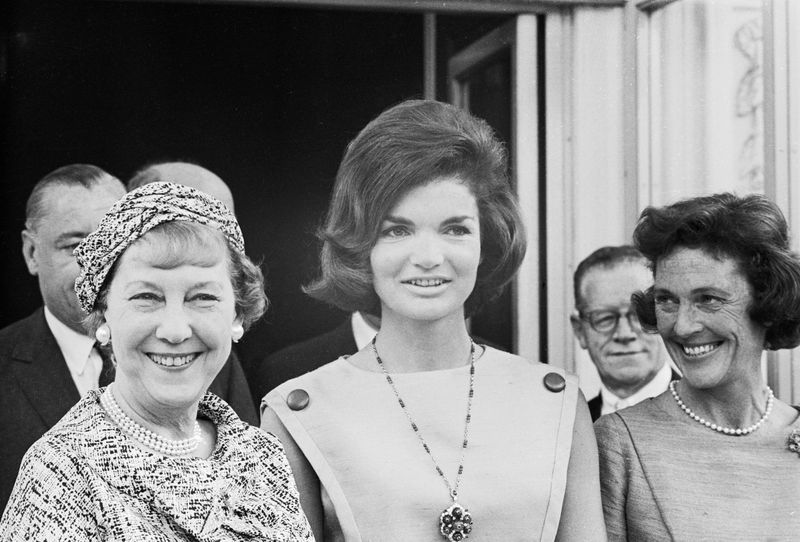
Jackie and Mamie Eisenhower Didn't Get Along at First
Mamie Eisenhower did not want to leave the White House and viewed Jackie Kennedy as a young, and inexperienced, "college girl" who she couldn't envision filling her position of First Lady.
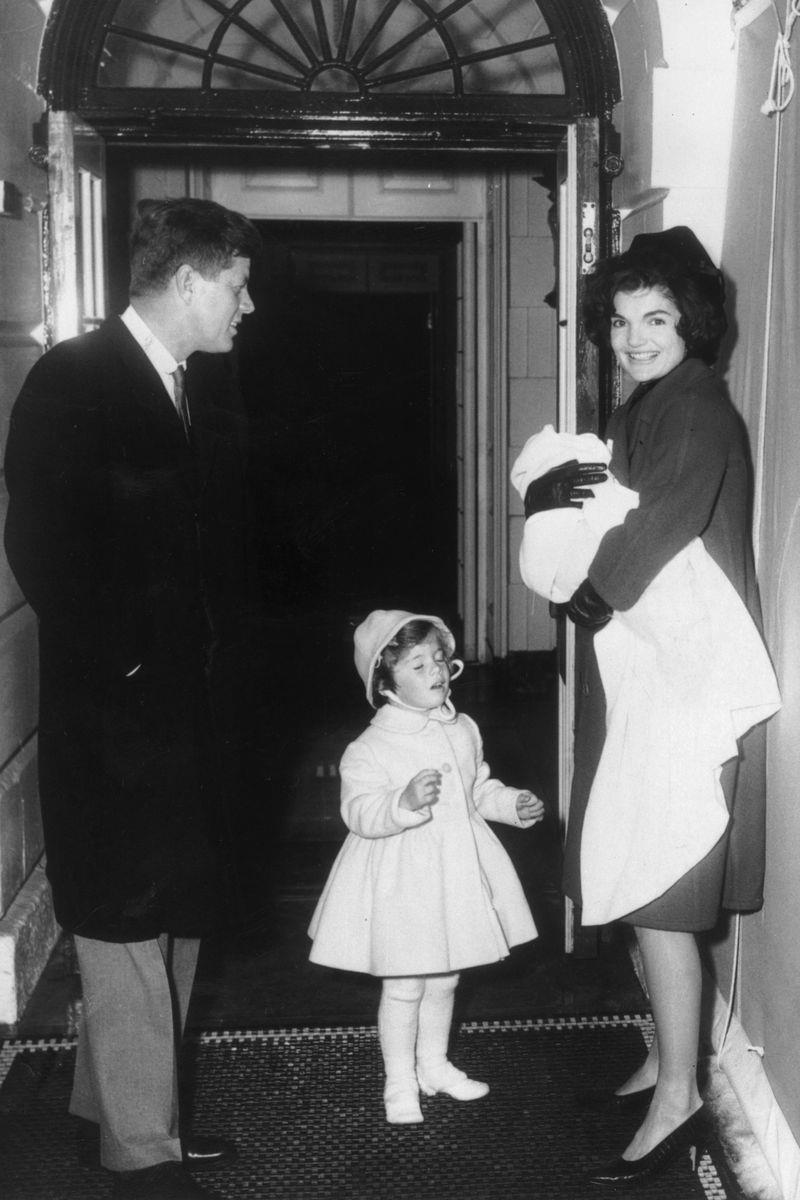
It Only Took the Kennedys Two Hours to Move into the White House
Tradition has it that the incoming president is not allowed to move anything into the White House until he is sworn in. There is also an elaborate system in place that facilitates the move, and as a result, the Kennedys were moved into the White House only two short hours after JFK's inauguration.
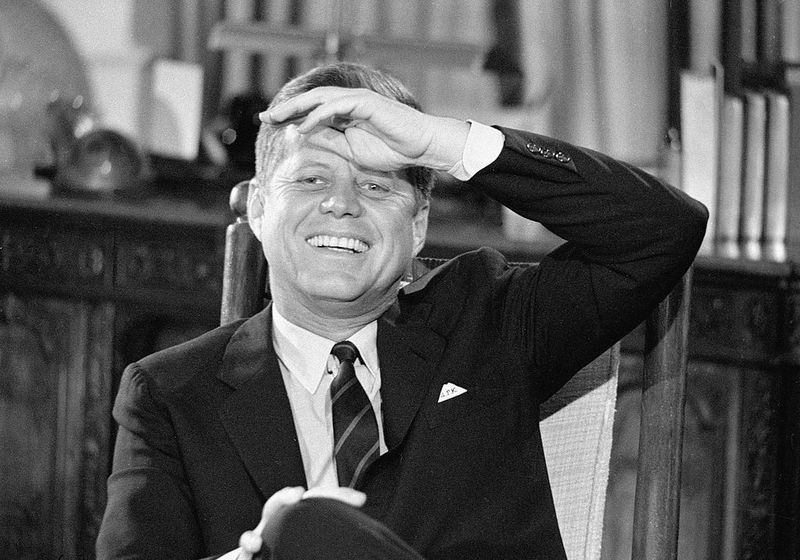
John Got Lost in the White House
JFK, intending to lead guests in the Blue Room, led them into the pantry. He laughed at his mistake, saying, "Oh, this is another room I wanted to show you."
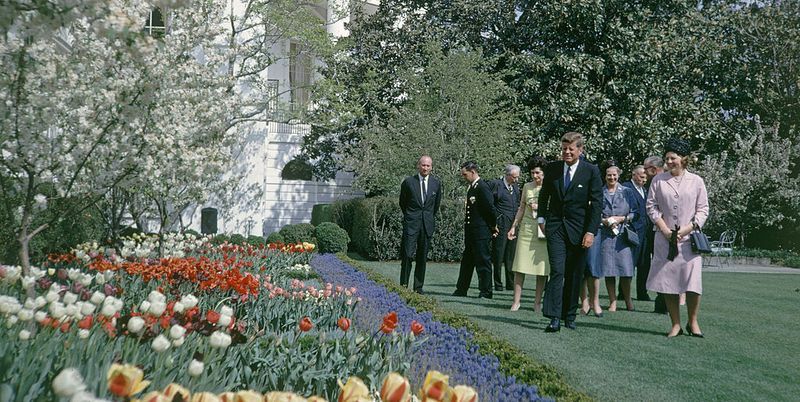
The Kennedy White House (Legally) Threw Trash into the Potomac River
At the end of every year, a butler carted all the broken china to Hains Point and threw it into the Potomac River.
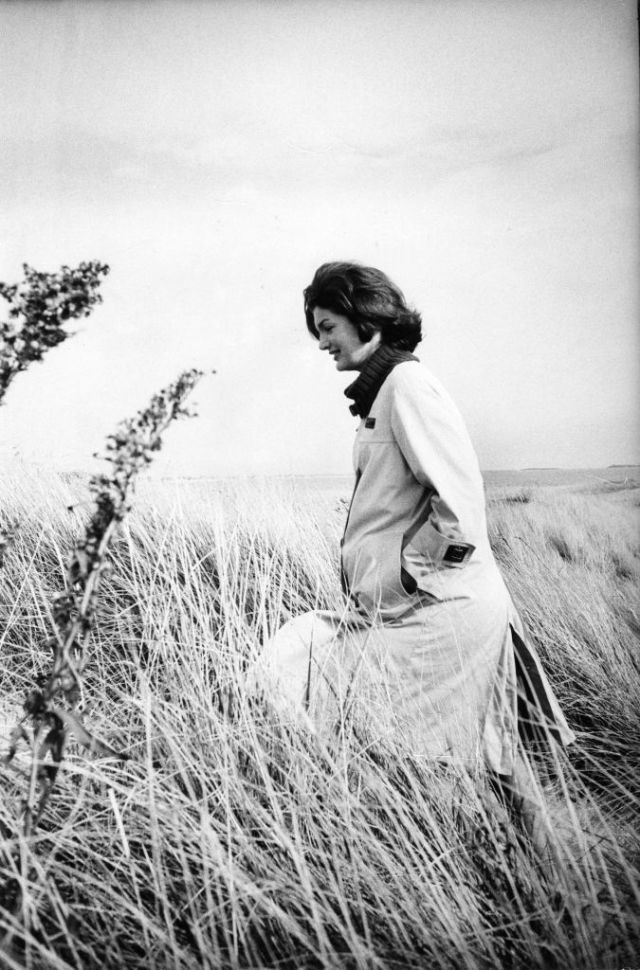
Jackie Frequently Walked up to Sixteen Miles a Day
Jackie loved to walk around the White House grounds—sometimes all sixteen miles of them—by herself and on a daily basis.
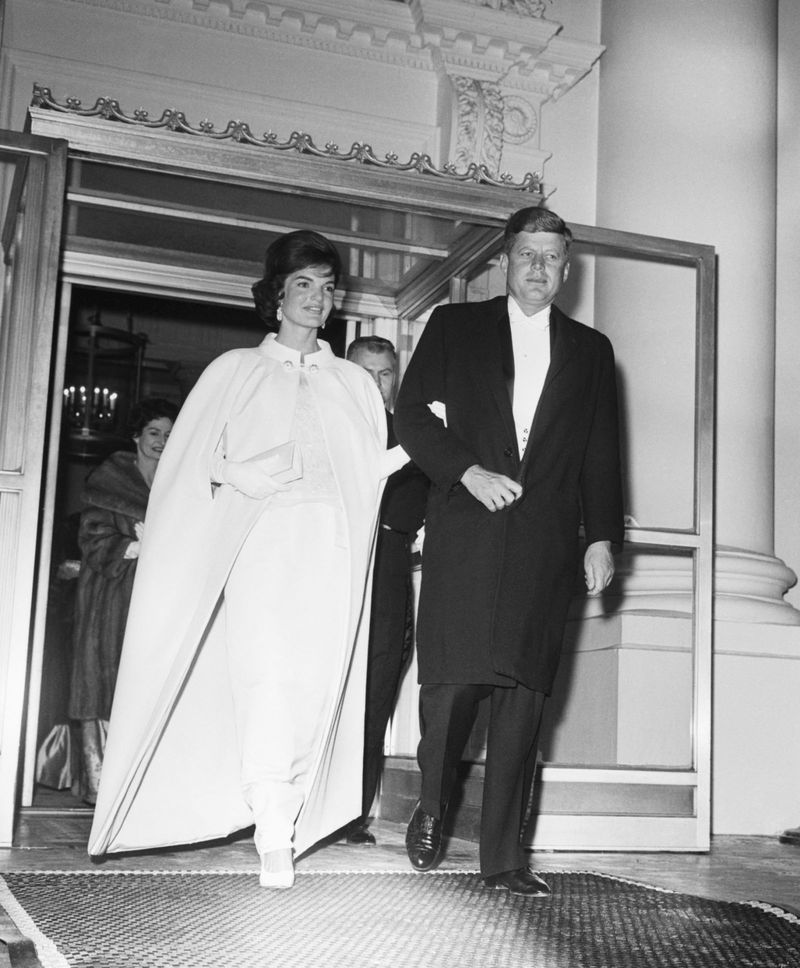
Jackie Often Needed Help Getting Undressed
Sometimes Jackie's outfits were so intricate that she needed assistance getting undressed. It became such a frequency that one of her maids ended up choosing to stay late after all major events.
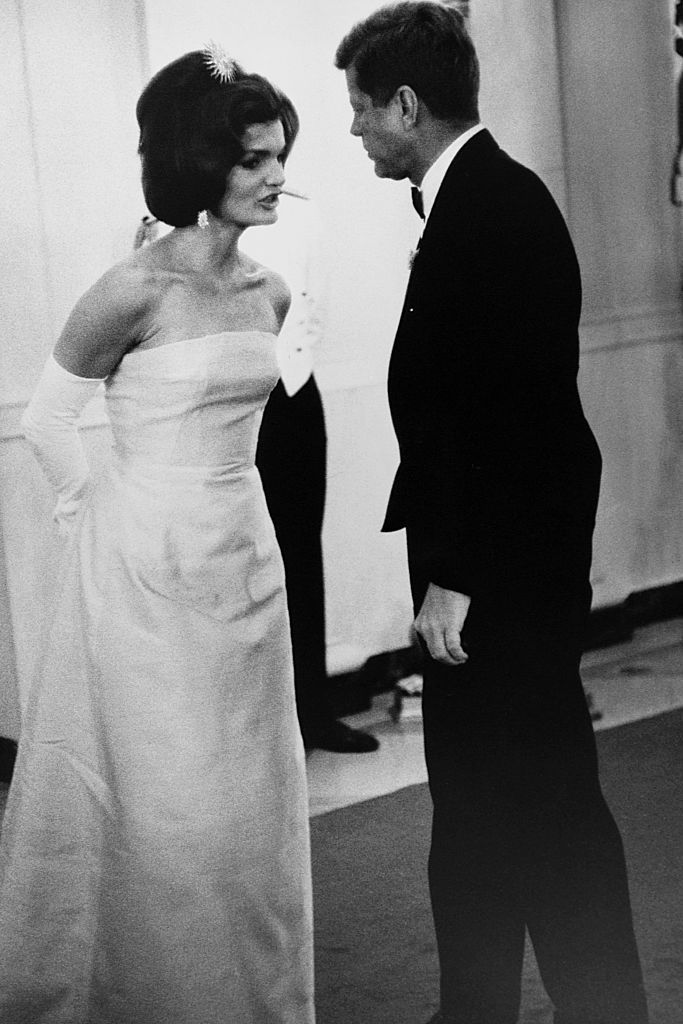
John Sent Jackie to Have Electroshock Therapy
One night after John came home from a date with one of his mistresses, he and Jackie—both intoxicated—got into a heated argument. Jackie ran out of the house wearing only her slip, and John called for an ambulance to pick her up. She ultimately was taken to a psychiatric hospital and received three shocks of electroshock treatment for depression.
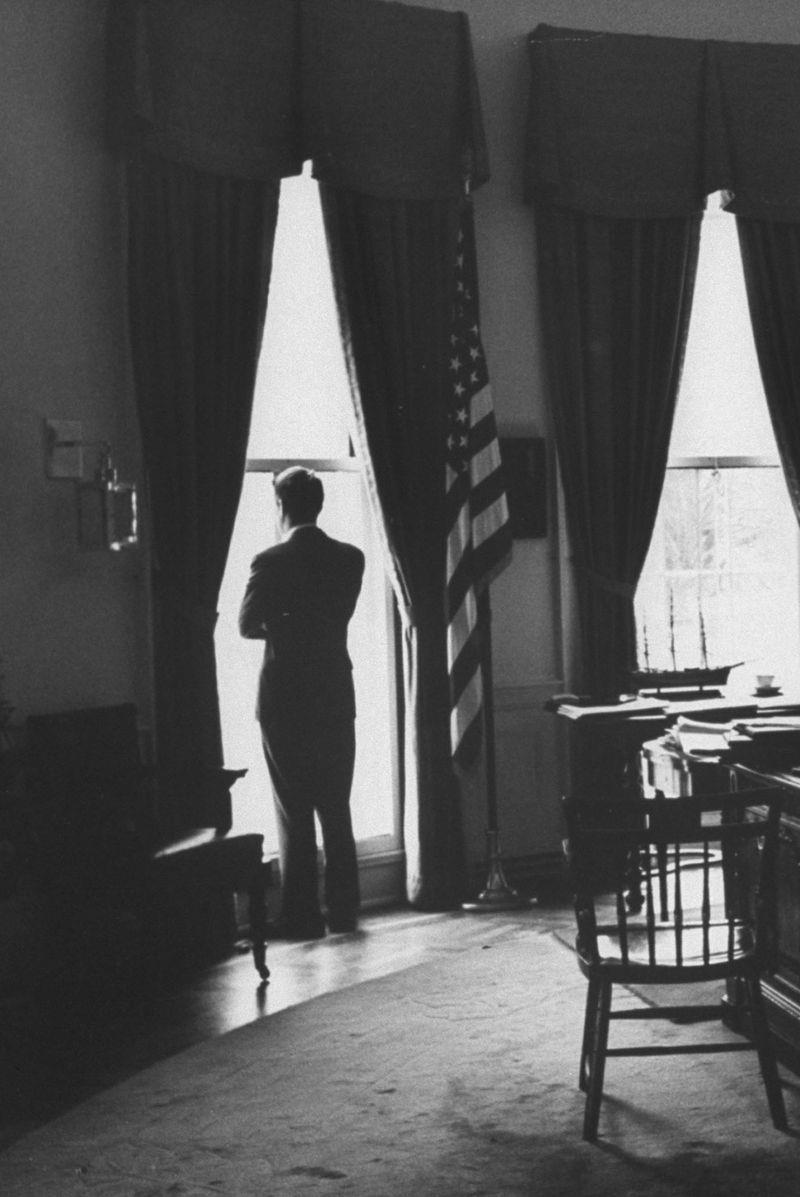
John Bugged the White House
In 1962, John installed a secret taping system in the Oval Office and the Cabinet Room that was connected to a recorder located in the White House basement. The motivation behind this decision is widely disputed, but many subscribe to the belief that Kennedy installed the system to document content for his future memoir.
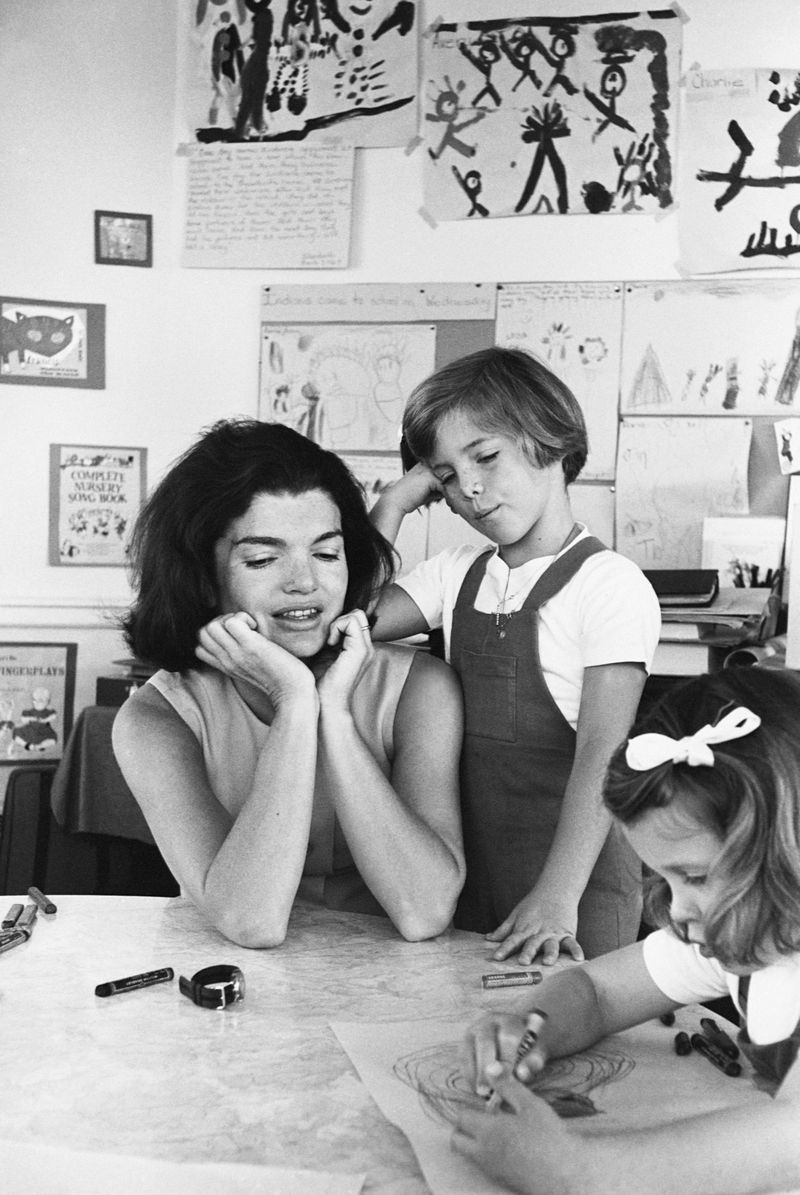
Jackie Started a School in the White House
Jackie was extremely invested in keeping her children away from the press and, given that it had become impossible for her eldest to travel in the city without a trail of photographers, Jackie decided to open a school on the third floor of the White House. Jackie invited other kids to join, and eventually her third floor was transformed into a legitimate kindergarten classroom with qualified, professional teachers, ten students, and even a couple of animals.

John Originally Orchestrated a Plan to Partner with the Soviet Union in the Expedition to the Moon
Kennedy was allegedly concerned about the high costs involved in the expedition, and initially proposed a joint mission. In a proposal to the United Nations, he said, "Why should man's first flight to the moon be a matter of national competition? Why should the United States and the Soviet Union, in preparing for such expeditions, become involved in immense duplications of research, construction, and expenditure?"
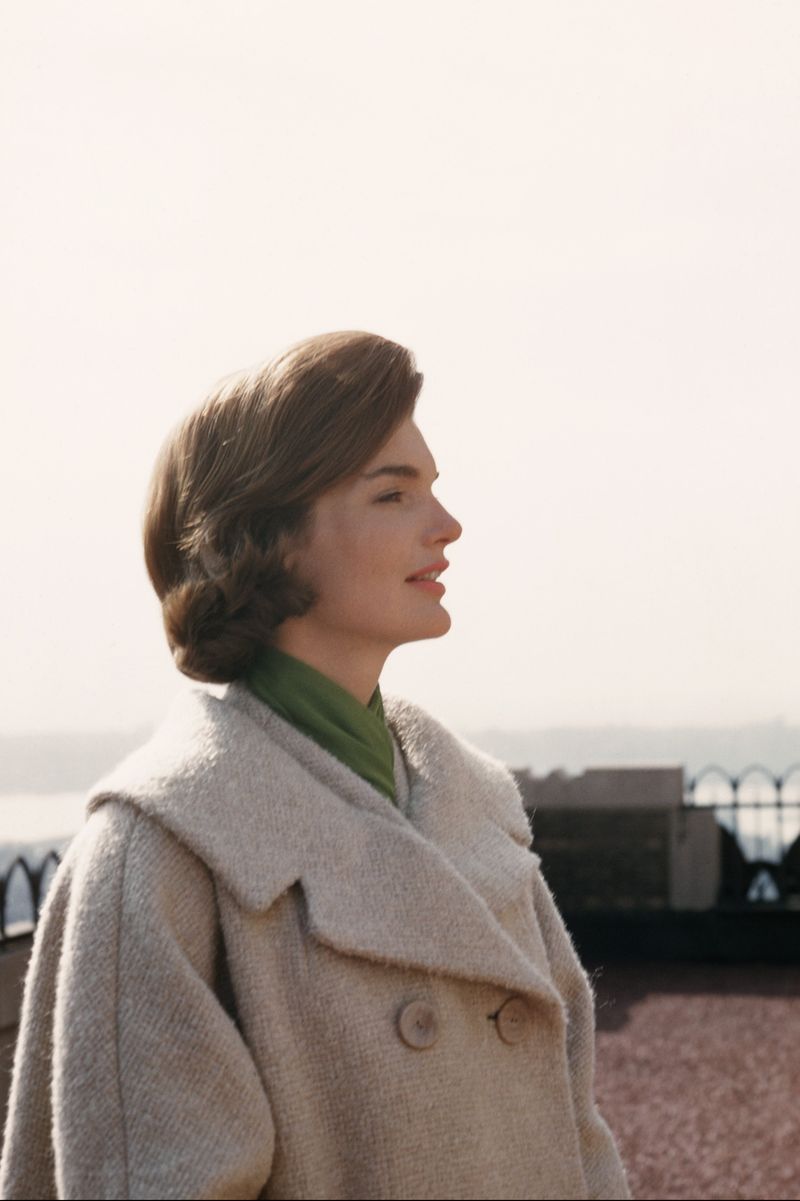
Jackie Spoke Four Languages
Jackie became fluent in Spanish, French, and Italian after taking foreign language classes in school and through traveling around the world. This skill proved very useful when on the campaign trail with John, as she was able to communicate Kennedy's campaign objectives to voters who did not speak English.
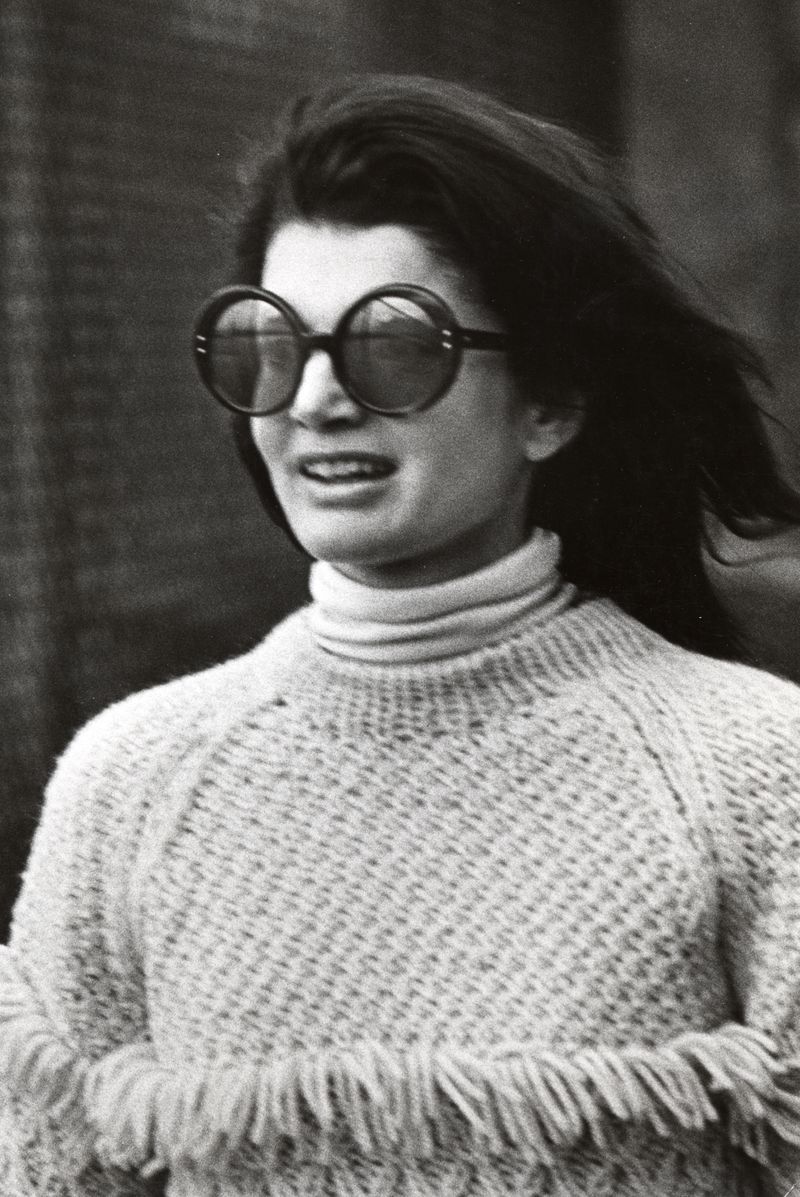
While Many People Admired Jackie's Fashion Sense, She Received Extreme Criticism
Her style was so frequently emulated that many designers replicated pieces of her wardrobe in their collections. However, during the first Presidential Campaign, she received harsh criticism for her expensive taste. During the presidency, some critics argued that her infatuation with French couture supported the theory that the Kennedy's true interests lay elsewhere.
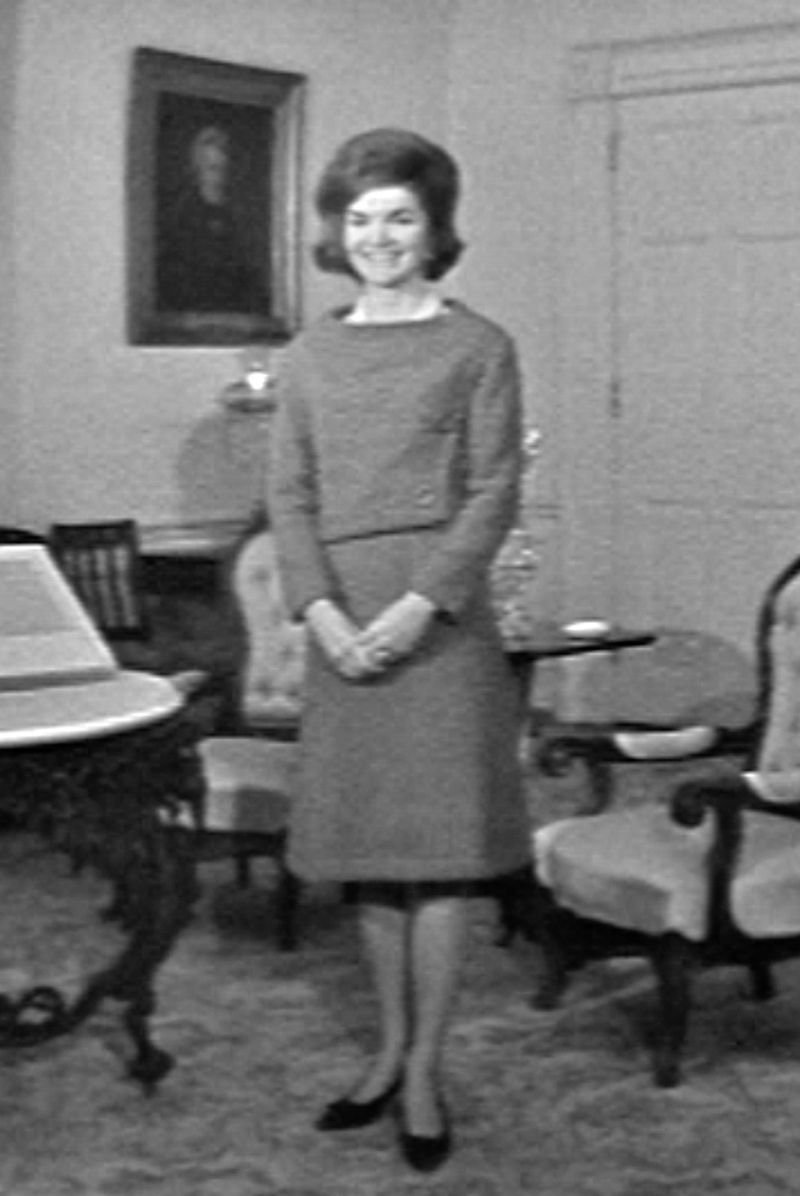
Jackie Orchestrated an Elaborate White House Renovation
Jackie's sense of style was not limited to fashion. She launched a massive remodel of the entire white house. She created the Fine Arts Committee for the White House, to which private donors issued huge sums of money. As a result, she decorated the White House with artifacts otherwise exclusive to museums. The results were so impressive that CBS asked to film a special, which earned Jackie an Emmy Award in 1962.
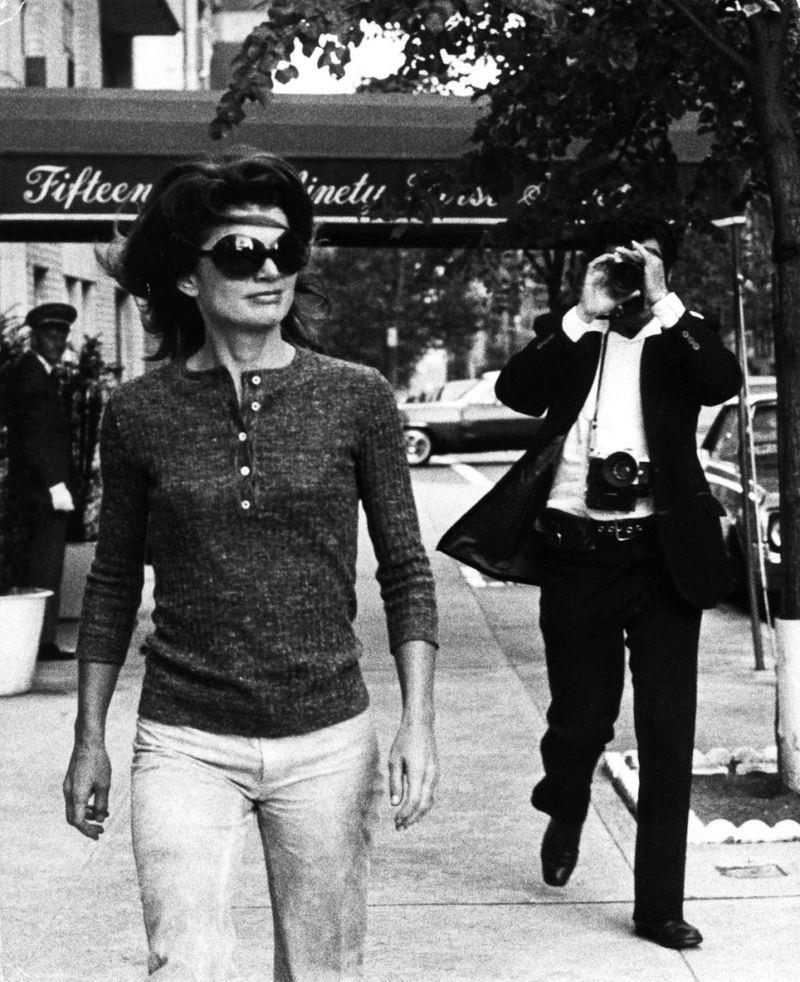
Jackie Sued a Member of the Paparazzi for Harassment and Invasion of Privacy
While the paparazzi had always fostered an infatuation with Jackie, she received an unprecedented amount of attention after her 1968 marriage to Aristotle Onassis. While she was the target of many paparazzi, one in particular, Ron Galella was obsessed with tracking her every movement. The level of obsession warranted a law suit, which Jackie justifiably won.
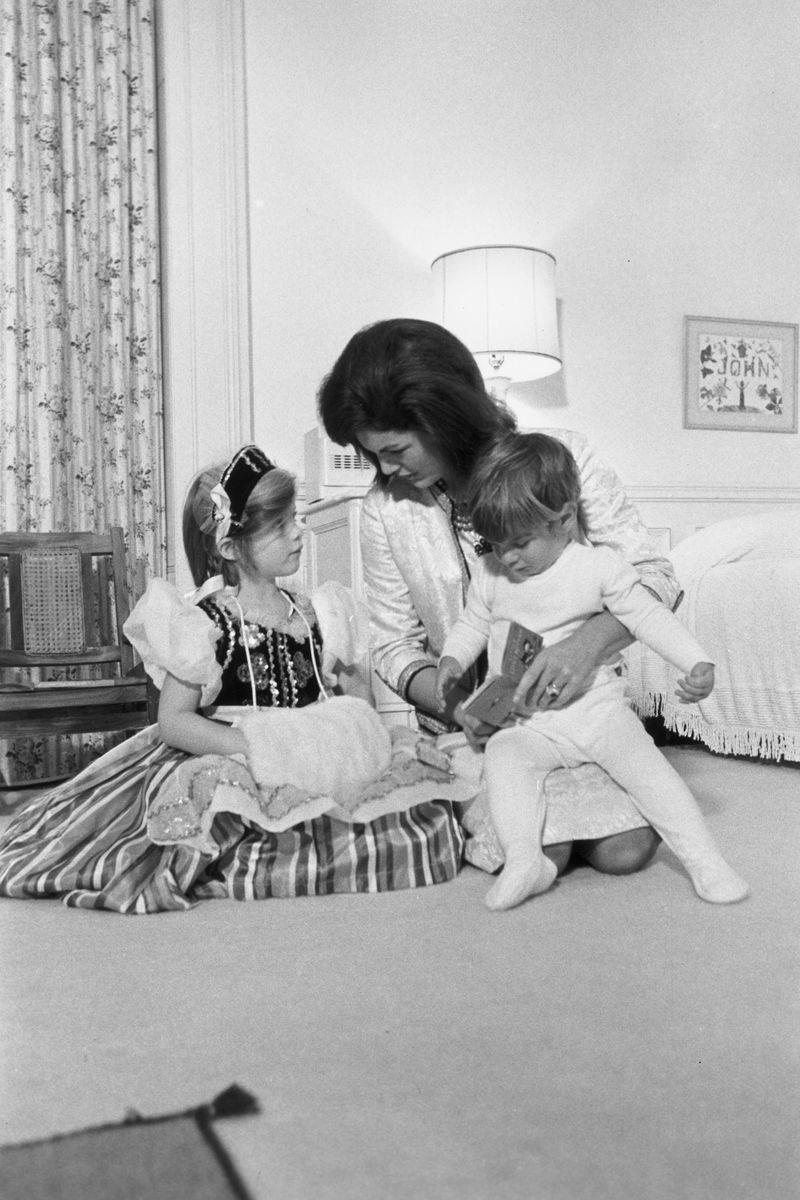
Jackie Ate Grilled Cheese Sandwiches and Took Naps on Her Free Afternoons
If Jackie didn't have any appointments or visitors, she would go upstairs, have a grilled cheese in bed, and take a nap.
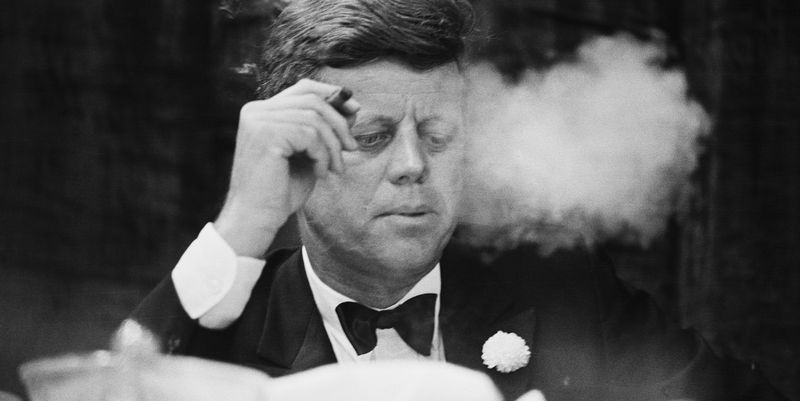
JFK Secured 12,000 Cuban Cigars Before Enacting the Cuban Trade Embargo in 1962
Before launching the commercial, economic, and financial embargo, JFK made sure that he had a hefty supply of his favorite Cuban cigars.
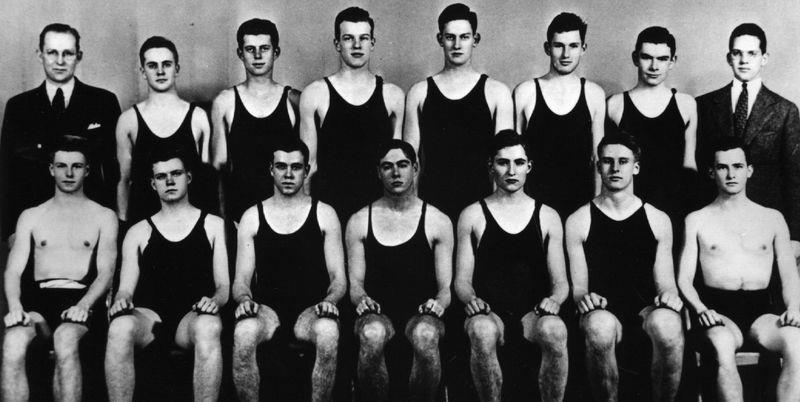
John Swam With No Swimsuit On Every Day
JFK finished his work day at 1:30 on a regular basis. He would head straight to the pool, swim laps with no swim suit on, and then eat lunch in his bed.
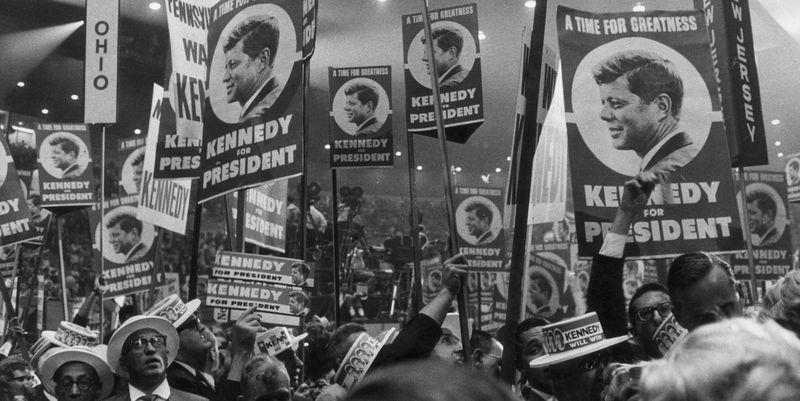
John Came Very Close to Running for Re-Election against Mitt Romney's Father
When John Kennedy was preparing for reelection, he evaluated his potential opponents. Among them was George Romney, a Republican who challenged Kennedy's confidence in his campaign. "That guy can be tough," Kennedy said in a 1963 conference.
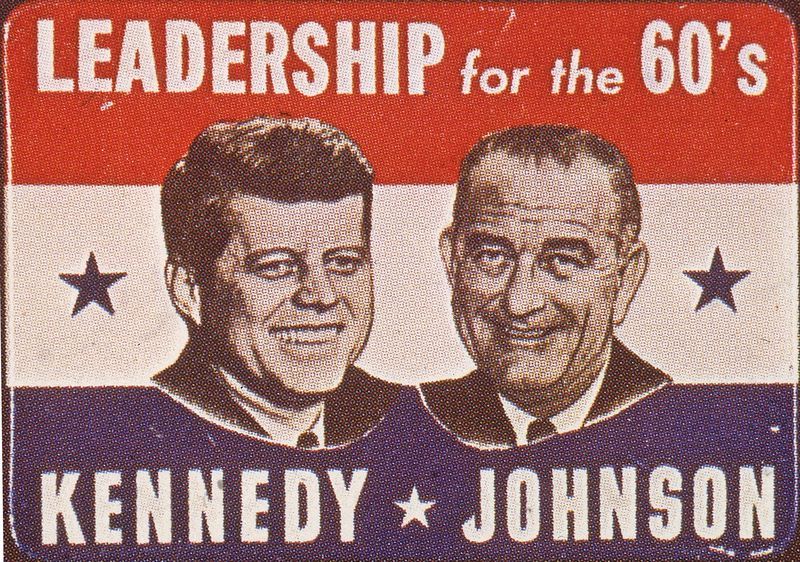
John Was Suspected of Dropping Lyndon B. Johnson from the 1964 Ticket
Kennedy's secretary, Evelyn Lincoln, revealed in her memoir that John was considering a switch. Three days before his death and hours before his assassination, the Dallas Morning News printed an interview with Nixon, in which he revealed his suspicion that Kennedy would drop Nixon.
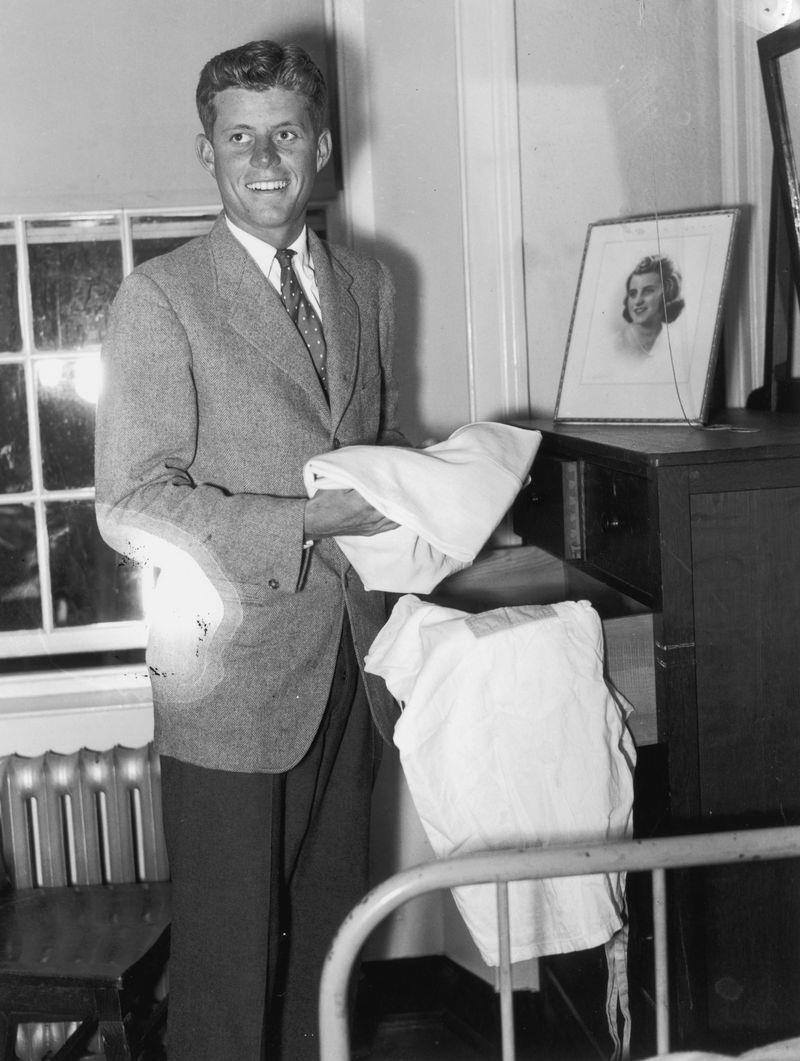
John Had More Laundry Than Jackie
Sometimes JFK swam twice in one day, which meant he changed into as many as three suits. Thus, his laundry pile far exceeded Jackie's.
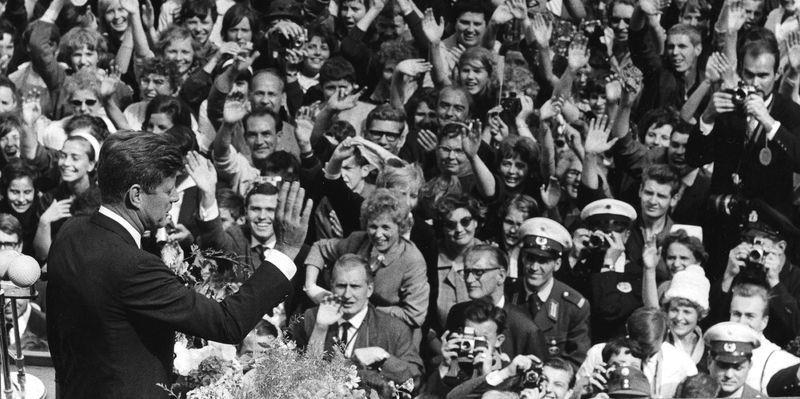
John Donated All of His Congressional and Presidential Salaries
John's father distributed significant portions of his fortune to his children on a yearly basis, which was more than an adequate amount to fund JFK's living expenses. As a result, John donated his entire congressional and presidential salaries to various charities.
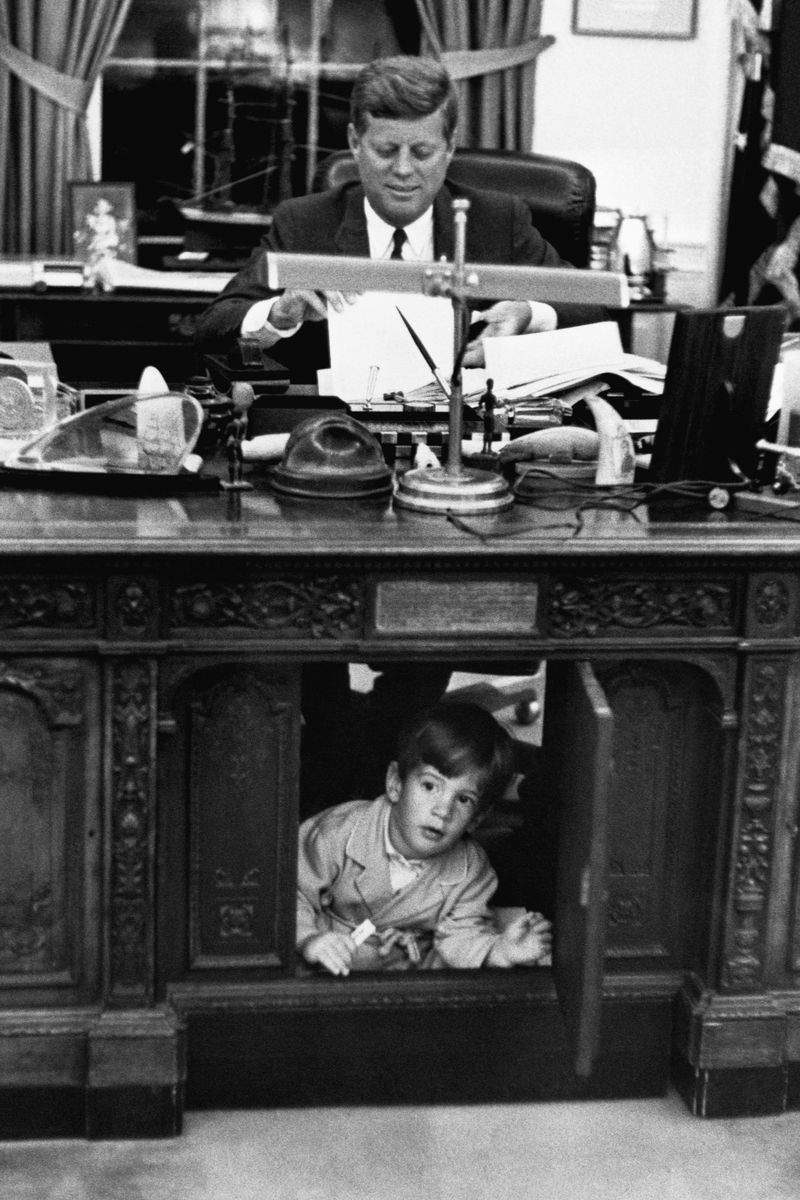
Each Member of John's Family Was Given a Secret Service Code Name Beginning with the Letter "L"
The secret service referred to all four members of JFK's family by codenames that began with the letter "L." As Irish Central states, "JFK's secret service codename was 'Lancer,' alluding to the knight in the play Camelot, as his presidency was endearingly compared to the story of Camelot, first by Jackie herself. Jackie's codename was 'Lace,' their son John Jr.'s was 'Lark,' and their daughter Caroline's was 'Lyric.'"
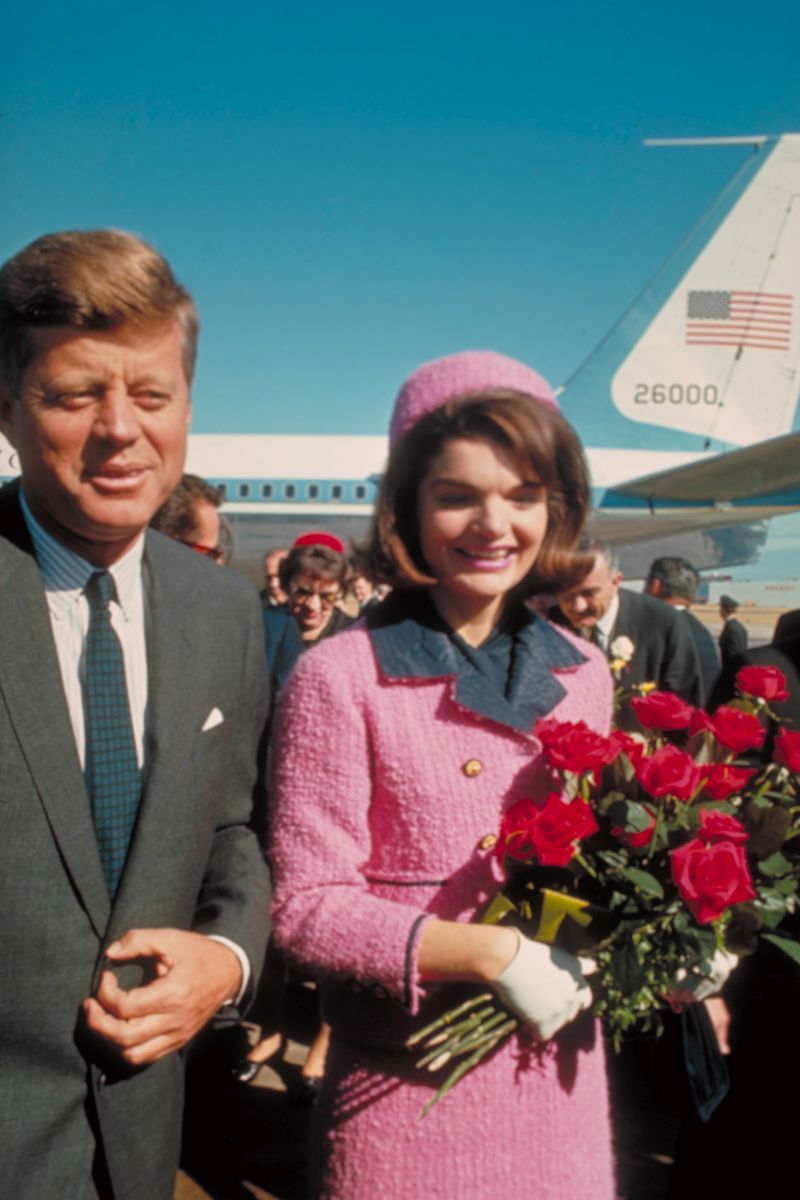
Jackie Intentionally Didn't Change out of Her Stained Dress on the Day of the Assassination
Jackie was sitting next to JFK wearing her iconic pink suit when he was assassinated in 1963. She refused to change out of the suit even when Johnson was sworn in as president. Lady Bird Johnson asked if she would like to change, to which Jackie responded, "Oh no, I want them to see what they've done to Jack." The suit is now in the National Archives, but the famous pink hat she wore on the day has not been found.
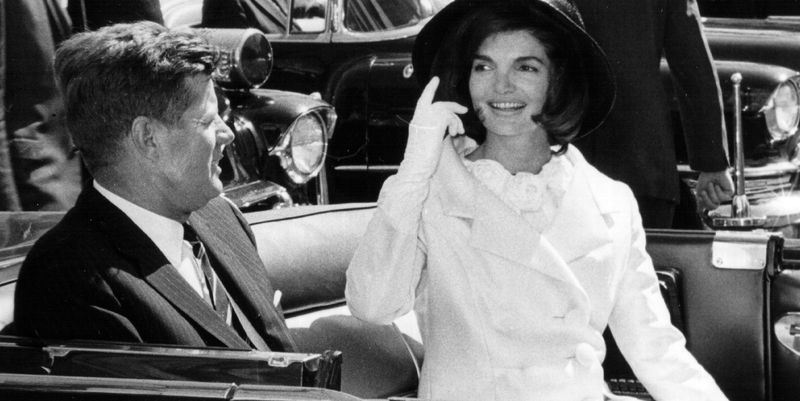
Jackie Pioneered the Term "Camelot" to Refer to the Kennedy Administration
A week after John's death, Jackie sat down for an interview with Life, during which she spoke of John's love for the musical, "Camelot." Jackie said of her husband's presidency, "There will be great presidents again, but there will never be another Camelot." The name stuck, and from then on, the Kennedy administration was constantly referred to as "Camelot."
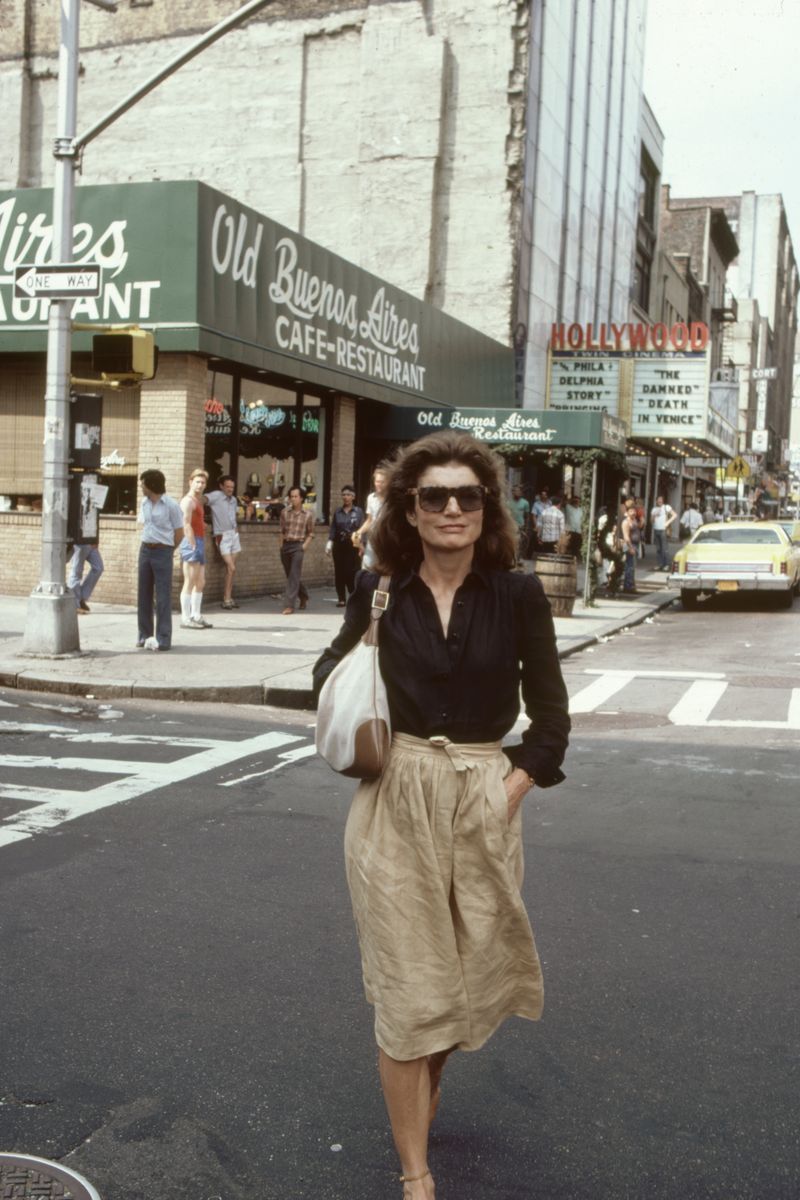
Jackie's Lifelong Interest in Literature Manifested in a Successful Editing Career
After her second husband's death in 1975, Jackie moved to New York to pursue a book-editing career. She started out as a consulting editor and then eventually moved up to the position of Senior Editor which she held until her death in 1994.